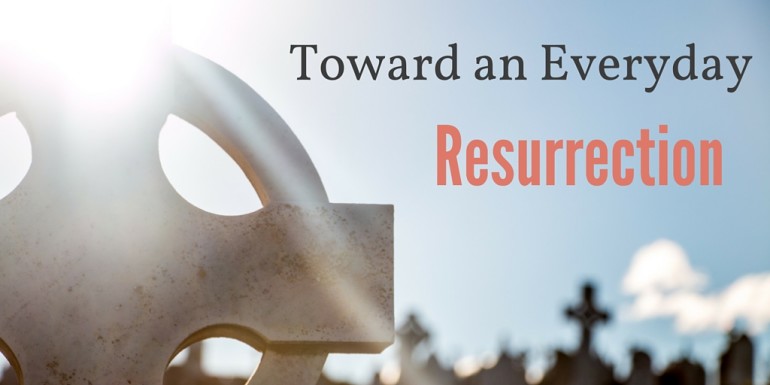One of the main goals
of a Life Group at our church is to get to a point where the group
members are praying out loud together. For some groups, the idea of
group prayer seems far off and unachievable. For other groups, group
prayer has become a staple. When it comes to prayer, the role of the
leader is two-fold:
1. Personal prayer life: To continually develop his or her own prayer life.
2. Group prayer: To help cultivate an environment of group prayer.
Personal Prayer Life
The personal prayer life of a leader is one of the most important
areas a leader can develop. It’s evident throughout Scripture that
prayer is vital for the health of Christians, but often we overlook
actually praying. Jesus said: “I am the vine; you are the branches. If
you remain in me and I in you, you will bear much fruit; apart from me
you can do nothing” (John 15:5). Having an intimate and intentional
relationship with Jesus bears fruit. We must first have this kind of
relationship with Jesus before we can lead others there.
Jim Egli has done
extensive research
on the correlation between a group leader’s prayer life and the health
of the group. Egli’s research found that the most important thing a
leader can do for his or her group is to pray regularly for group
members. Finding opportunities to pray throughout the day can help shape
us into prayerful leaders.
A few years ago a friend shared with me that he prays for his group
on the way to and from work each day. Rather than listening to the radio
or music, he prays for one group member in the morning and a different
one in the evening commute. By the time he gets to the end of the week
he has prayed for all the members of his group. Since hearing his story,
my drive home has become a time for me to pray for my small group. You
may find another way to pray throughout the day for your group members.
The point is to create space in your life to pray regularly for your
group.
Group Prayer
What does healthy group prayer look like? Unfortunately, many of the most popular group prayer methods aren’t ideal.
One of the most common prayer methods today is the “lone leader”
method. Time is spent sharing prayer requests, the leader writes down
the requests, and then the leader prays for the requests. There are
several problems with the “lone leader” method:
- Only one person in the group is praying out loud.
- Usually more time is spent discussing the prayer requests than actually praying.
- Prayer requests are given central stage and opportunities to engage
in praising God, asking for forgiveness and thanksgiving are neglected.
Barriers to Healthy Group Prayer
Let’s be honest. Group prayer makes a lot of people nervous or
frustrated. If we want to move beyond the “lone leader” method to open
prayer, we’ll have to address these barriers. Dan Mancini once
wrote about four common barriers to group prayer that I’ve found helpful:
- Group members lack experience with prayer.
- Group prayers lack authenticity and depth.
- Group prayer times lack structure and variety.
- Group members don’t follow up on prayer requests.
All of these contribute to a lack of comfort around prayer. As a
group leader it’s your responsibility to help combat this. It often
takes time to become comfortable praying out loud with others. Some of
this will simply take time. After all, as your group continues to meet,
builds trust and gets to know each other, the comfort level will
increase.
Prayer Exercises
But there are also several things you can do to help your group
members feel more comfortable with group prayer. I teach my small-group
leaders to use different kinds of prayers to help group members become
more comfortable praying out loud over time. Try these ideas in order.
Guided Prayer
This is a great way to introduce a group to praying out loud
together. The model is simple: The leader explains to the group that
everyone will fill in the blank of a sentence prayer. This keeps the
prayers simple and allows everyone to talk. Plus, it’s a great way to
connect prayer to your study topic. For instance, if you’ve just done a
study on celebration, guide the group with “God, I celebrate you
because___.”
It’s important to let the group know the following guidelines:
1. Keep it short and let everyone know there will be time later for longer, more specific prayers.
2. Participating more than once is encouraged.
3. It’s OK to repeat a word or thought someone else has already prayed.
Some examples could be:
God, you are ___.
God, thank you ___.
God, I love you because _____.
God, help me overcome my fear of ___.
The leader will go first to set the example. For instance, the leader
may say, “God, you are forgiving.” Then group members can share their
own sentences. When it’s time for the second one the leader will again
go first. After you’ve gone through two or three sentence prayers,
transition the group into a time of open prayer. Now is the time to pray
for anything that may be on your heart or mind.
Prayer Request Cards
It’s common for groups to spend time taking prayer requests.
Unfortunately many groups spend more time discussing those requests than
actually praying. This method collects prayer requests yet keeps the
focus on praying.
Provide notecards and pens for everyone to write down prayer
requests. Be sure to let the group know that the prayer requests will be
shared with the person on their left and potentially prayed for out
loud. Remind group members to keep prayer requests focused on themselves
or their immediate family members.
Once group members finish writing their requests, pass the notecards
one person to the left. If you lead a co-ed group, it might be better to
have group members pass to the next person on their left who is the
same gender.
Next group members will pray silently or out loud for the cards they
hold. The leader begins the prayer time by praying for the notecard he
or she received. Once everyone has had a chance to pray, the leader will
close the prayer time.
Group members take home the cards they received and pray throughout the week for the requests.
Teaspoon (T.S.P.) Prayer
The T.S.P. prayer method encourages everyone to share a Thanks, Sorry
and Please. The T.S.P. method creates an important yet often overlooked
opportunity to tell God we’re sorry.
Pass out notecards and pens ensuring everyone has three cards. Ask
group members to write one word on each card: Thanks, Sorry and Please.
Then turn over the cards and write a corresponding prayer for each. Let
group members know ahead of time that cards will be shuffled and
redistributed for prayer, so someone else will be reading what they
wrote. They don’t need to write their name on the cards, though.
Once everyone is finished writing, collect the cards in three
separate stacks: Thanks, Sorry and Please. Shuffle or mix up each stack
and pass out the cards. If group members receive one of their own cards,
they can either keep it or exchange it. Then group members will take
turns reading the card they received as a prayer. Read all the Thanks
cards before continuing on to the Sorry cards, and all the Sorry cards
before moving on to the Please cards. The leader can begin the time, and
then close the time once everyone has gone.
Once the time has closed, each member is encouraged to pray for the
prayers they received as well as any other shared prayers from the
evening throughout the coming week.
Growing Comfort
These three methods have a natural progression that helps people grow
in their comfort of praying out loud. For some group members, this may
be the first time they’ve ever prayed out loud. We must respect where
they are. At the same time, we must be willing to gently push them
outside of their comfort zone without shoving them off a cliff. This
process takes time and the leader needs to discern how to help each
group member grow in this area.
My wife and I lead a group, and we struggled to engage all the
members in group prayer. When we asked people to pray, Jim would always
avoid eye contact and joke about how he was never going to pray.
Eventually we incorporated Guided Prayer, and though Jim was very
uncomfortable, he completed his sentence. As weeks went by, we saw Jim
become more and more comfortable. The Teaspoon Prayer and Guided Prayer
gave Jim more confidence and comfort, and now Jim prays freely. By
introducing a variety of prayer methods with the expectation that
everyone would eventually pray, we have seen not only Jim but our whole
group grow leaps and bounds in their group prayer life.

















